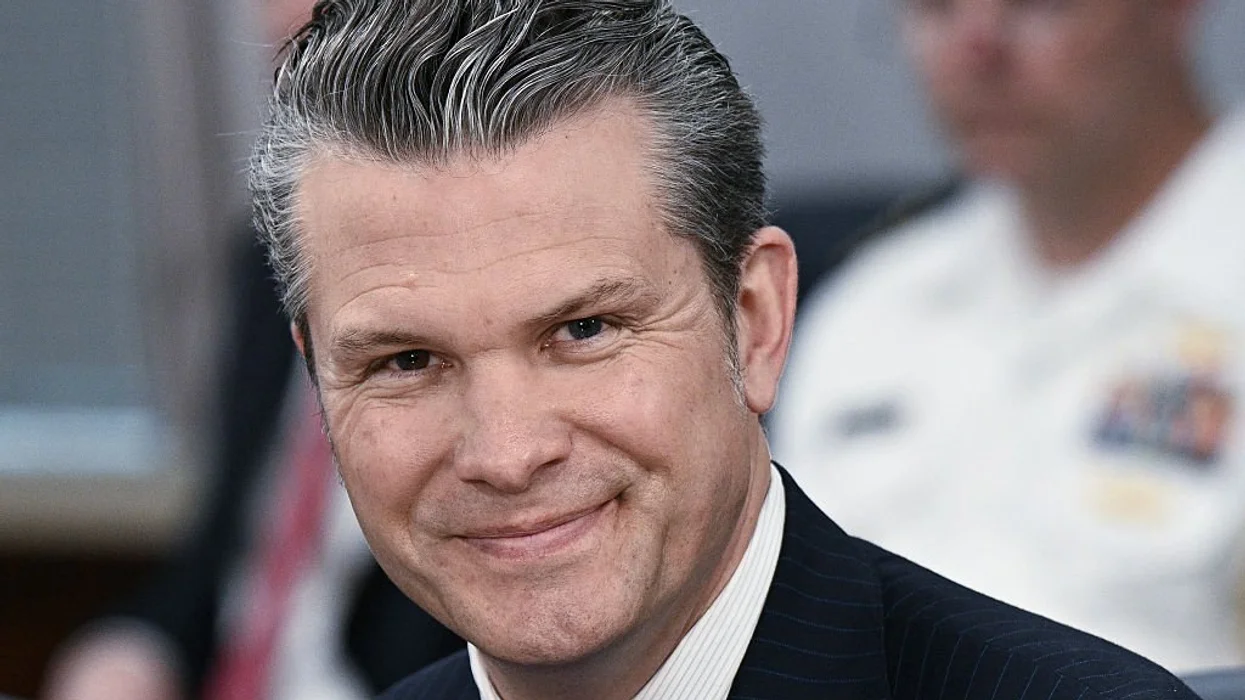Climate change and other environmental concerns could play a bigger role in how the federal government makes food recommendations.
 Filmmaker Kip Andersen and musician John Joseph attend a Q&A at the "Cowspiracy: The Sustainability Secret" New York premiere, Aug. 21, 2014 in New York City. (Rob Kim/Getty Images)
Filmmaker Kip Andersen and musician John Joseph attend a Q&A at the "Cowspiracy: The Sustainability Secret" New York premiere, Aug. 21, 2014 in New York City. (Rob Kim/Getty Images)
That's a warning from Jayson Lusk, an agricultural economist at Oklahoma State University and author of “The Food Police: A Well-Fed Manifesto about the Politics of Your Plate,” after a new Obama administration appointment of a self-described "environmental nutritionist."
Lusk said combining healthy eating with climate concerns is part of a "progressive ideology that 'we know better than you,' and a willingness to use the federal government to push utopian ideas."
“It's marrying two ideas of not only is this better for the environment to eat only certain foods, but it's better for your health," Lusk told TheBlaze.
In July, Angela Tagtow became the executive director of the U.S. Department of Agriculture's Center for Nutrition Policy and Promotion, which oversees the Dietary Guidelines Advisory Committee. The committee formulates the government's recommendations of which foods and how much people should eat, and affects how the military and public schoolchildren are fed and how federal food assistance programs operate.
Tagtow founded Environmental Nutrition Solutions, a nonprofit that aims to make food “ecologically sound,” the Washington Free Beacon reported. She has advocated for government programs to subsidize the purchase of locally grown fruits and vegetables, called for eating less meat, and wants to see schools and workplaces establish “fast-food free zones,” according to the Free Beacon.
Tagtow also wrote the “Good Food Checklist for Eaters” at the University of Minnesota that made several recommendations, and explains the connection between nutrition and the environment.
“Our food choices directly influence our family’s health and profoundly influence the health of the planet,” she wrote. “It starts with soil, the earth’s life-support system. Science proves that healthy soil grows healthy food.”
The Center for Nutrition Policy and Promotion did not respond to repeated interview requests from TheBlaze.
Politico previously reported that the food industry was "buzzing” over the Tagtow appointment, which “ramped up speculation that the administration will keep sustainability and environmental considerations as part of the ongoing effort to update federal nutrition guidelines.”
But as a matter of policy, environmental nutrition makes no scientific sense, Lusk said.
“It's one thing for the government to make nutritional guidelines,” Lusk said.
Lusk pointed to the new documentary film, “Cowspiracy: The Sustainability Secret,” which asserts that the beef industry is the single biggest threat to the planet, and accuses the government, business and even environmental groups of covering up the danger.
“It's not totally ludicrous for the government to evaluate the environmental impacts of what you eat," Lusk said. "But to combine these two goes beyond science. Here it's asking you to weigh the value of the environment versus nutrition and what price you place on each. It's not science, it's values judgment.”
Even the Environmental Protection Agency finds that agriculture in the United States makes up just 8 percent of greenhouse gas emissions, Lusk said, while on the other hand, green food policies may have economic consequences such as reduced incomes for cattle ranchers and rural communities.
At the July 17 hearing of the Dietary Guideline Advisory Committee, Independent Women's Forum senior fellow Julie Gunlock warned about the impact this could have on consumers.
“The DGAC’s shift from diet and nutrition to environmental issues will increase food costs for all Americans at a time when consumers are already struggling with higher prices at the grocery store,” Gunlock said. “Muddying these important recommendations with issues like climate change, sustainability, animal rights, immigration, pest control [and] other non-nutrition issues will only lead to the recommendations being ignored by the American public.”
–
Follow Fred Lucas (@FredVLucas3) on Twitter

 Filmmaker Kip Andersen and musician John Joseph attend a Q&A at the "Cowspiracy: The Sustainability Secret" New York premiere, Aug. 21, 2014 in New York City. (Rob Kim/Getty Images)
Filmmaker Kip Andersen and musician John Joseph attend a Q&A at the "Cowspiracy: The Sustainability Secret" New York premiere, Aug. 21, 2014 in New York City. (Rob Kim/Getty Images)


